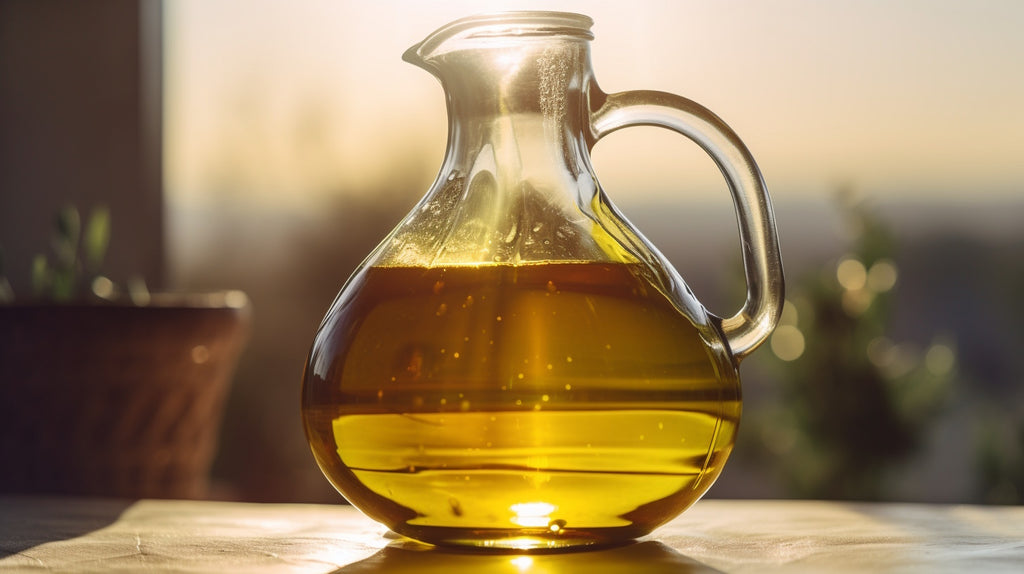Highlights
- Unfiltered olive oil is an increasingly popular type of olive oil that contains small particles of the olive fruit.
- Unfiltered olive oil has a higher nutrient content, more antioxidants, and a longer shelf life compared to filtered olive oil.
- The brown particulate matter in unfiltered olive oil is natural and safe to consume, and it can add to the flavor profile of the oil.
- Selo's unfiltered olive oil is a high-quality example of this type of oil, produced using the first cold-pressed method.
- Unfiltered olive oil is perfect for finishing dishes, dressings, dips, and marinades, adding a burst of flavor and nutrition to any meal.
- To ensure the quality and flavor of unfiltered olive oil, it's important to store it in a cool, dark place away from sunlight and heat.
Are you curious about the floating brown bits in your unfiltered olive oil? Unfiltered olive oil is becoming increasingly popular due to its unique flavor, nutritional benefits, and longer shelf life. In this article, we will delve into the process of making unfiltered olive oil, its health benefits, and the brown particulate matter that can cause concern for some. By the end of the article, readers will have a good understanding of unfiltered olive oil and how to properly use it.
What is Unfiltered Olive Oil?
Unfiltered olive oil is produced by crushing the olives into a paste, then separating the oil from the solids. Filtered olive oil is produced by passing the oil through a filter to remove any remaining solid particles. Unfiltered olive oil retains a higher concentration of nutrients and antioxidants, which are lost in the filtering process. To identify unfiltered olive oil, look for the words "unfiltered" or "cold-pressed" on the label. Unfiltered olive oil is widely available in specialty stores and online.
Health Benefits of Unfiltered Olive Oil
Unfiltered olive oil has higher levels of antioxidants, polyphenols, and vitamin E compared to filtered olive oil. These compounds have been shown to have anti-inflammatory, antibacterial, and anti-cancer properties. Unfiltered olive oil also has a richer and more complex flavor profile, making it a popular choice among food enthusiasts. Furthermore, unfiltered olive oil has a longer shelf life than filtered olive oil, making it a more cost-effective option.
Why Are There Brown Bits Floating in My Olive Oil and Are They Safe to Eat?
The brown bits in unfiltered olive oil are natural and safe to consume. They are small particles of the olive fruit, including skin, pulp, and pits, that are not removed during the pressing process. These particles will settle to the bottom of the bottle over time, but some may float in the oil. The quality of the particulate matter can vary based on the olive variety, harvesting methods, and processing conditions. The best way to identify the quality of the particulate matter is to examine its color and texture. The darker and denser the particles are, the higher their quality.
The amount of brown bits in unfiltered olive oil can also be influenced by storage conditions. If the oil is exposed to light and heat, more particles will float to the top, making the oil appear cloudier. It's best to store unfiltered olive oil in a cool, dark place away from sunlight and heat.
Conclusion
Selo's olive oil is a great example of a high-quality unfiltered olive oil. It is produced using the first cold-pressed method, which preserves the natural flavor and nutritional content of the olives. Selo's unfiltered olive oil retains a higher concentration of antioxidants, polyphenols, and vitamin E compared to filtered olive oil, making it a healthier option. Additionally, Selo's unfiltered olive oil contains the natural brown particulate matter, which settles to the bottom of the bottle over time. By using Selo's unfiltered olive oil, consumers can enjoy the unique flavor and numerous health benefits of this increasingly popular oil.

